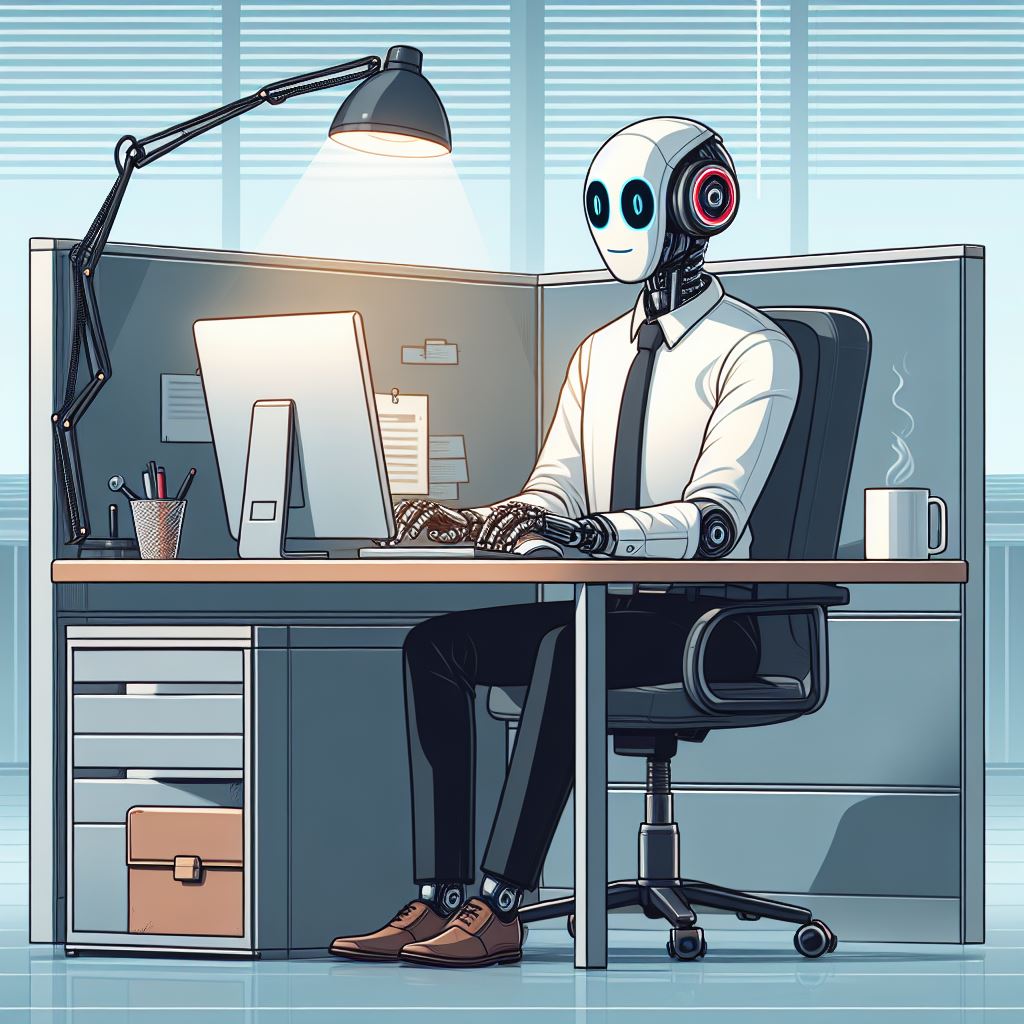The advent of Artificial Intelligence (AI) has sparked a global debate. Will AI replace you in your job, or will it create new opportunities? This question is at the heart of discussions about the future of work and is becoming increasingly relevant as AI technologies continue to evolve and permeate various industries.
Artificial Intelligence or AI’s ability to automate complex tasks has led to concerns about job displacement. From manufacturing to customer service, AI systems are being implemented to increase efficiency and reduce costs. However, it’s crucial to understand that AI is not just about automation. It’s also about augmentation.
AI can enhance human capabilities, leading to the creation of new roles and industries. This balance between automation and augmentation is a key aspect of the AI revolution. For instance, while AI can analyze vast amounts of data more quickly than a human ever could, it’s the human who uses that information to strategize, make decisions, and innovate.
While Artificial Intelligence can perform repetitive tasks more efficiently than humans, there are areas where humans excel. Professions that require empathy, creativity, and interpersonal skills are less likely to be replaced by AI. These uniquely human traits ensure a continued need for human workers, even in an AI-driven world.
So, will Artificial Intelligence replace you? The answer is not a simple yes or no. It depends on how we adapt and evolve with this technology. Lifelong learning, innovation, and adaptability are essential in preparing for the changes AI will bring. By upskilling and reskilling, we can ensure that we remain valuable in the workforce.
In conclusion, Artificial Intelligence or AI is not a threat to jobs if we learn to work alongside it. By embracing AI and adapting our skills, we can ensure that we are irreplaceable. The future of work in an AI-driven world is not about humans competing with machines, but rather, humans and machines working together to achieve greater outcomes.
Resources:
- Generative AI is speeding up human-like robot development
- Workers are secretly using AI on important task over fears it makes them look replaceable, new Microsoft and LinkedIn research finds.
- Will AI dream up the hit TV shows of the future?


